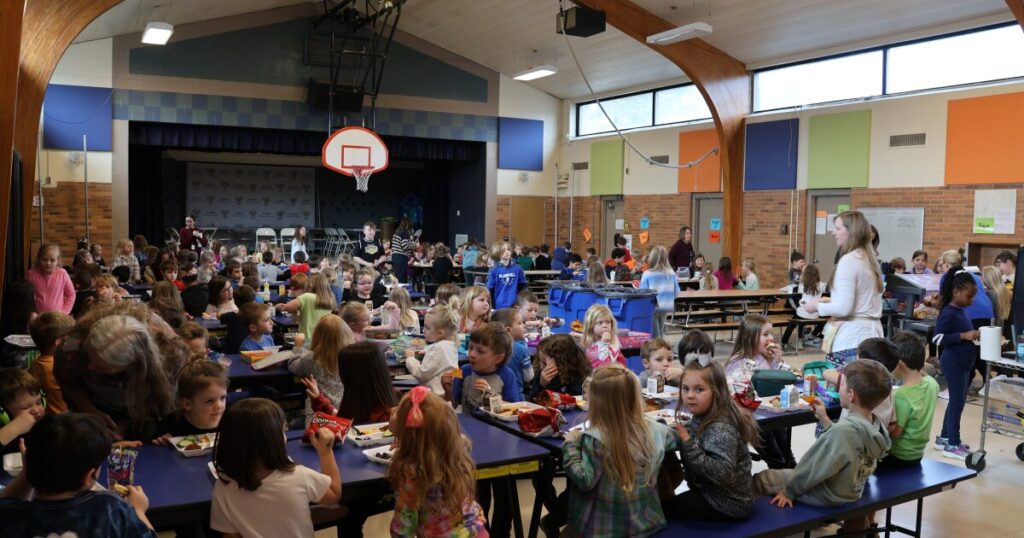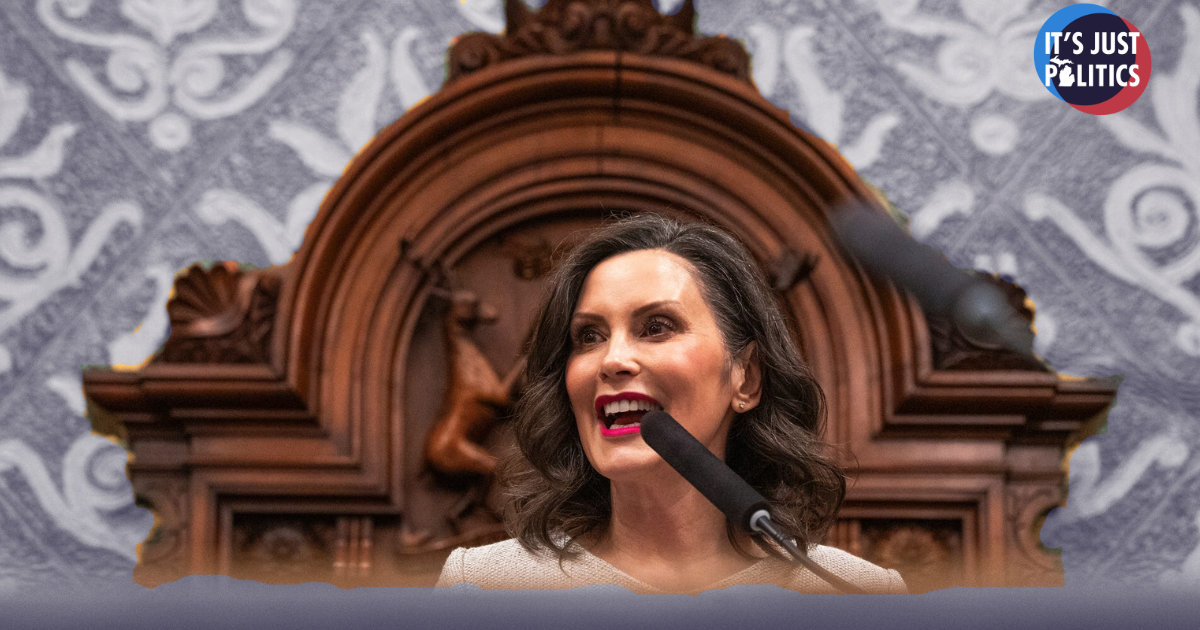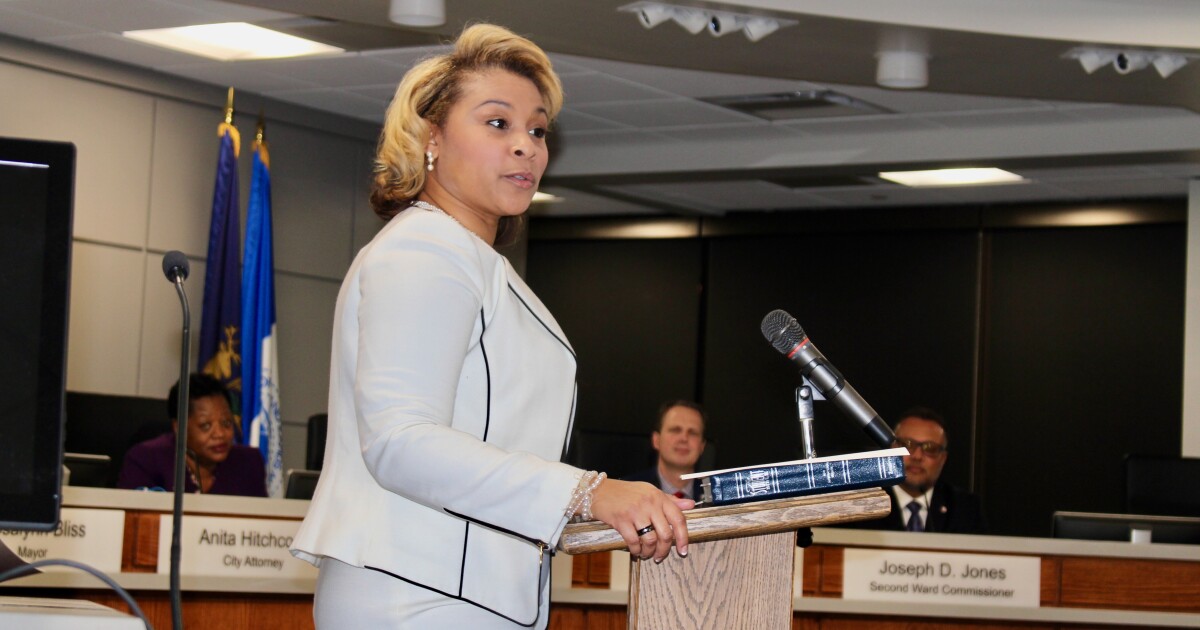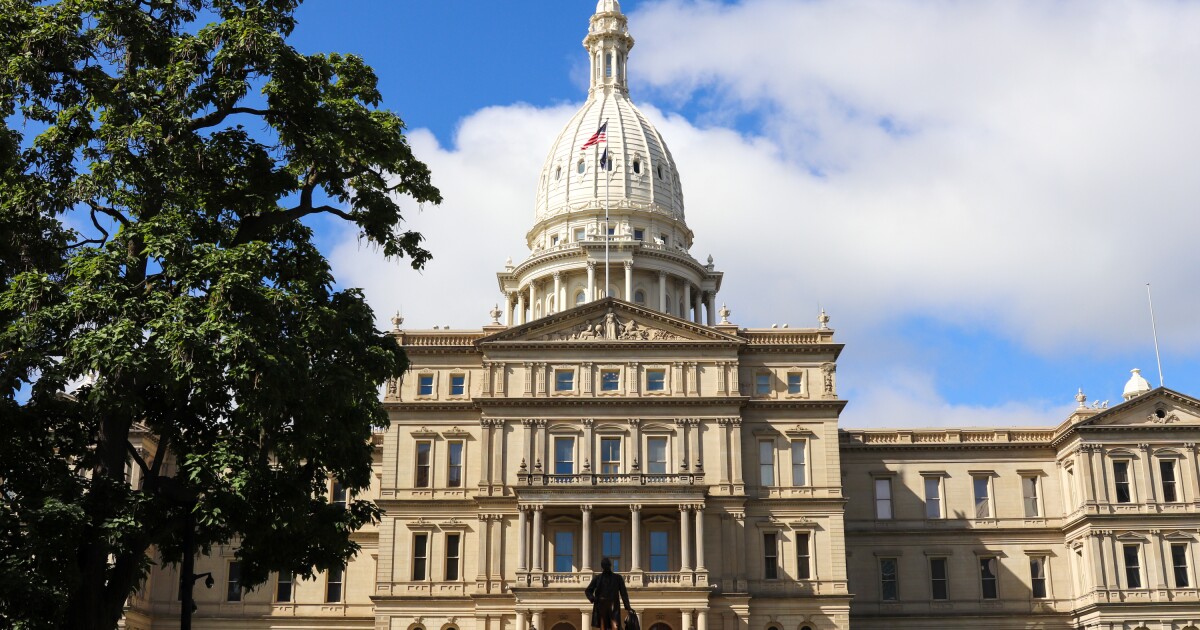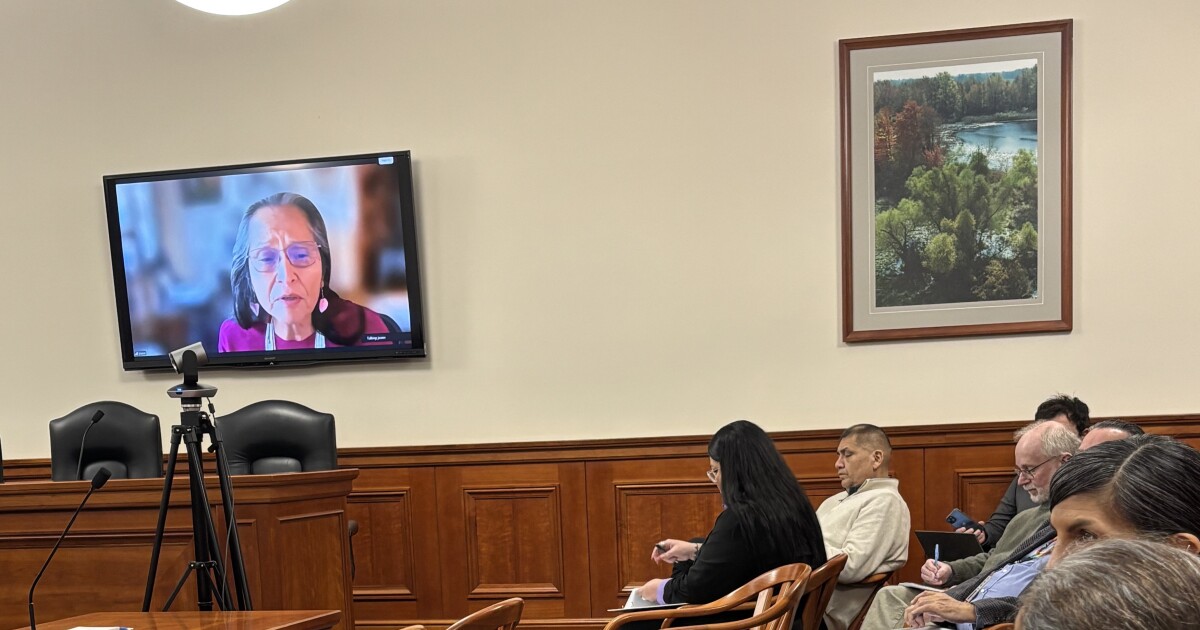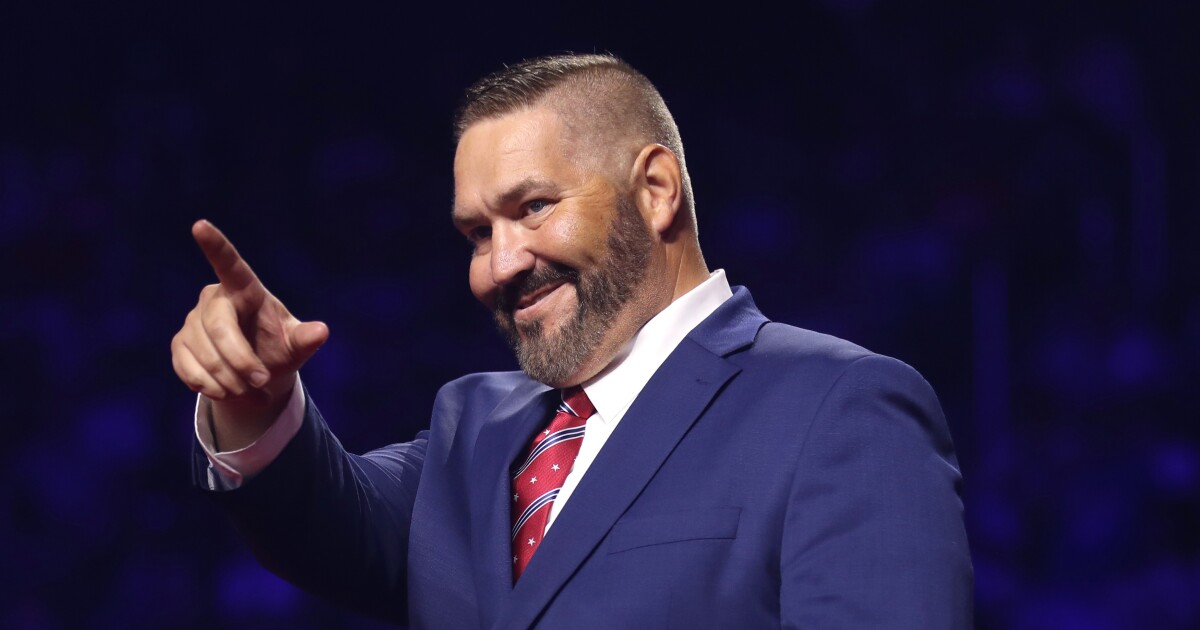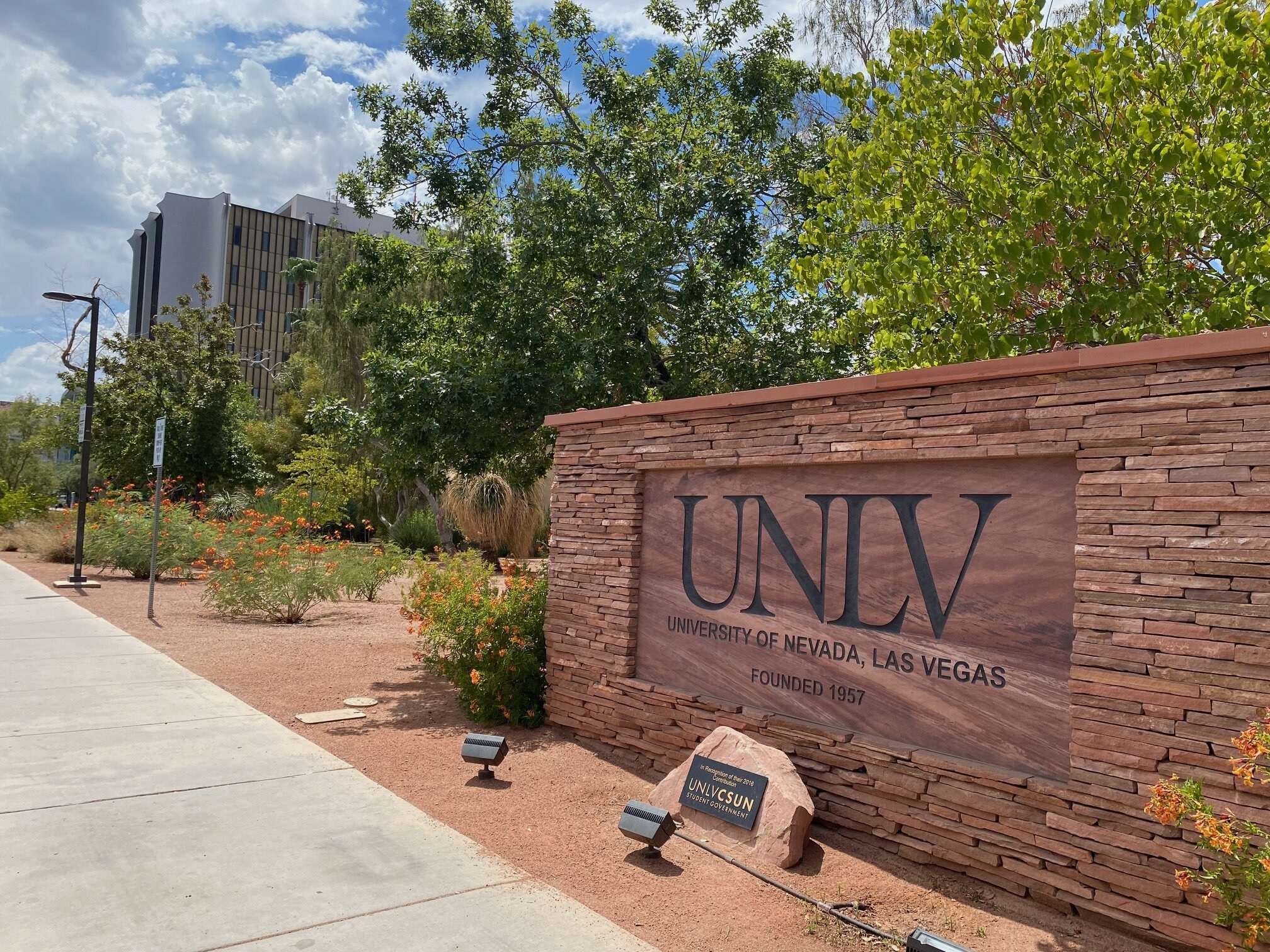In a gesture that combined community service with political discourse, Michigan’s lieutenant governor, alongside several lawmakers, distributed lunches to elementary students in Lansing on Tuesday. This initiative served not only to provide meals but also as a platform to discuss the upcoming state budget.
Months of discussions have been underway between Michigan’s Democratic-majority Senate and the Republican-controlled House, with little advancement seen thus far.
House Republicans have proposed a budget plan that allocates more overall funding for schools than what the Senate or governor’s office suggested. This plan offers schools greater flexibility in spending, allowing the use of one-time funds for services like free meals.
The Senate and governor’s office, however, aim to earmark certain funds to ensure essential programs, including free student meals, remain intact.
Lansing School District Superintendent Ben Shuldiner expressed a preference for more budgetary flexibility but emphasized the importance of maintaining directed spending for critical services.
“You want to think when you’re creating a school budget, you have this wonderful baseline that’s going to support everybody. And then look at different populations that extra support. Something like special education, something like (English Language Learner) services, those are things that we want,” Shuldiner remarked.
Lt. Gov. Garlin Gilchrist underscored the significance of free meals in educational success, stating, “This is a foundational program to ultimately the educational success that we need, the community success, the economic success that we need. Laying this foundation, taking this off the table I think is really important. So that’s what we want to see.”
Amid budget uncertainties, some districts have already ceased offering free meals. The Michigan Department of Education has advocated for continued meal provision through the month’s end, aligning with the state’s fiscal year transition.
State Representative Emily Dievendorf (D-Lansing) emphasized the importance of prioritizing essential resources in budget negotiations.
“There really is no excuse to letting a sense of competition or political theater to get in the way of getting our kids the food they need to make it through the day,” Dievendorf asserted.
Previously, House Speaker Matt Hall (R-Richland Twp) proposed a school funding agreement that protected meal funding, but Democrats hesitated due to the lack of a comprehensive budget plan.
Recently, House Republicans have advanced their overall budget proposal, paving the way for more detailed discussions with the Senate and governor’s office.
While Governor Gretchen Whitmer is currently on a trade mission to Japan and Singapore, she remains actively involved in budget negotiations.
“Governor Whitmer remains committed to signing a fully negotiated, bipartisan budget that lowers costs and continues cutting taxes for working families and seniors. That’s why the governor met with Senate Majority Leader (Winnie) Brinks and Speaker Hall last week, and why she has met other key decision-makers in the legislature each week since July 1. Our teams have been in daily communication to move forward on a budget,” stated Whitmer spokesperson Stacey Larouche.
Both legislative chambers are scheduled to meet in Lansing on Wednesday for a session.
The Michigan Public Radio Network’s Rick Pluta contributed reporting.
—
Read More Michigan News

